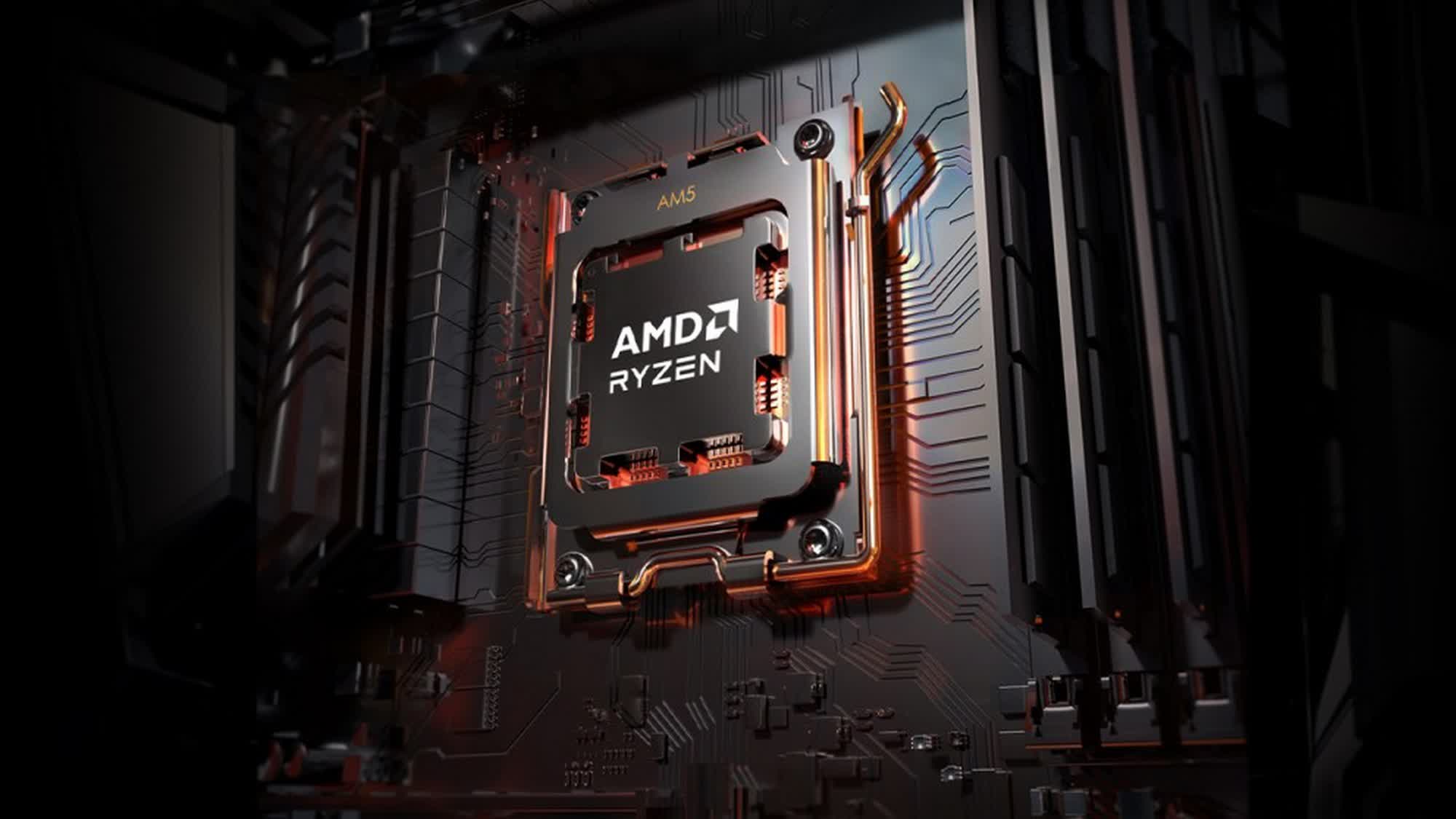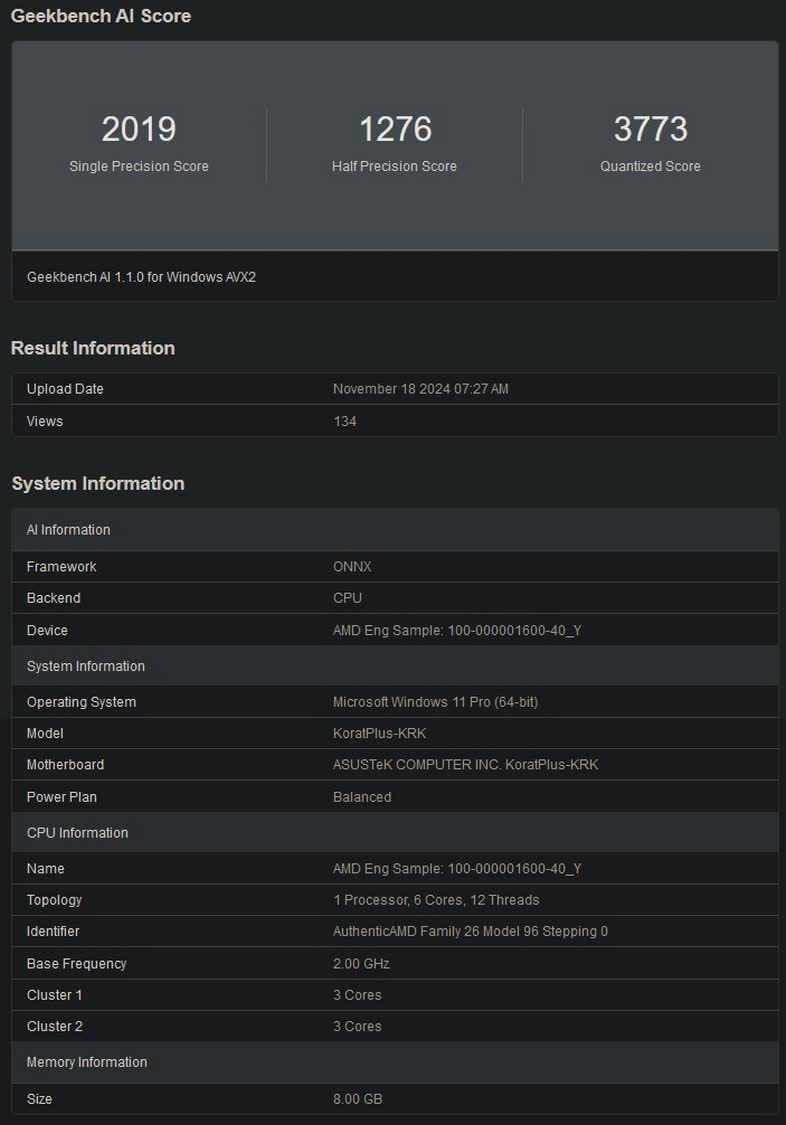Something to look forward to: AMD has long been rumored to be working on Zen 5-based Krackan Point APUs for budget PCs. Despite persistent rumors about them in recent months, there isn't a lot of concrete information about their specifications. However, a new leak now seemingly offers insight into the core configuration of one of the SKUs in the upcoming lineup.
A Krackan Point APU recently surfaced on Geekbench, but not for the standard Geekbench 6 test for CPU benchmarking. Instead, it's for the Geekbench AI test, which measures the chip's NPU performance. The listing, which was spotted by tipster @Olrak29_, shows the processor scoring 2019 points in the Single Precision test, 1276 points in Half Precision, and 3773 points in Quantization.
The scores seem to confirm rumors that Krackan Point will be a budget offering for the mainstream market rather than a high-end lineup designed for enthusiasts. The listing also reveals that this particular CPU packs six cores and 12 threads, including three Zen 5 cores and three Zen 5c cores. The System Information on the Geekbench page further reveals that the chip is an engineering sample, housed in an Asus laptop.
The listing does not reveal the chip's identity, but online speculation suggests that it could be marketed as the Ryzen AI 5 340. The integrated NPU is believed to be an XDNA 2 unit rated for 50 TOPS of AI performance, which should make it eligible for Microsoft's Copilot+ PCs. The chip is also said to feature a Radeon 840M integrated GPU with four RDNA 3.5 compute units.
The Kracken Point lineup is expected to also include the Ryzen AI 7 350 with four Zen 5 cores and four Zen 5c cores. It could feature eight RDNA 3.5 compute units, making it faster than the 340. Still, Krackan Point will be less powerful than Strix Point, which launched earlier this year with Zen 5 CPU cores, a new XDNA 2 NPU, and RDNA 3+ graphics.
AMD is rumored to announce Krackan Point in early 2025. The lineup is tipped to include the Ryzen Z2 Extreme, designed for next-gen handheld gaming consoles. Online speculations suggest that it could offer faster performance and better battery life than the Z1 Extreme, which powers devices like the Asus ROG Ally and Lenovo Legion Go.

